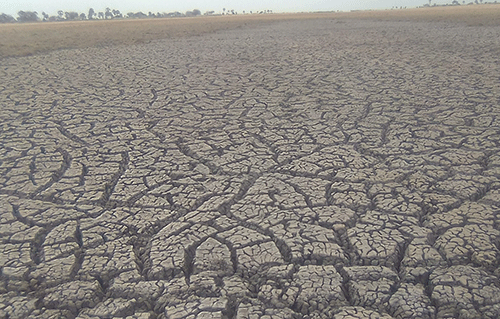Absalom Shigwedha
Prime Minister Saara Kuugongelwa Amadhila has said Namibia has made significant progress in achieving Land Degradation Neutrality (LDN) targets by focusing on restoration actions in seven land degradation hotspots.
Kuugongelwa-Amadhila made these remarks at a High Level Event to mark the 2023 World Day to Combat Desertification, held recently in New York, USA.
She said strengthening these targets and developing a land-use planning framework, strongly supported by integrating LDN into land management policies, is part of Namibia’s long-term strategy for LDN implementation.
However, she said, Namibia, like many developing countries, requires substantial financial support and technical support to enhance its LDN targets and implement integrated land-use planning frameworks at the national level.
“These efforts aim to restore degraded lands and ecosystems, mitigate climate change impacts, ensure food security, diversify and conserve biodiversity,” said Kuugongelwa-Amadhila.
She said, most importantly, these initiatives are carried out inclusively, recognising the significant roles women and children in households and Small and Medium Scale Enterprises.
Kuugongelwa-Amadhila explained that Namibia has shown a strong commitment to promoting gender equality and women empowerment since her independence in 1990 – and as such, the country has a dedicated ministry responsible for gender equality, child welfare and poverty eradication, emphasising the importance of uplifting women and recognising them as agents of change.
“This recognition of women’s rights not only improves livelihoods and food security, but also restores their dignity. Namibia recognises women’s role as custodians of traditional knowledge and active users of land resources, making the restoration of their land rights crucial for land restoration efforts,” said told the gathering.
She added that Namibia continues to implement decisions of both the United National Convention to Combat Desertification (UNCCD) and the United Nations Framework Convention on Climate Change (UNFCCC) on land degradation and drought.
This, she said, includes decision 24, which came out of the 15th Conference of the Parties to the UNCCD, held in Abidjan (Ivory Coast) in 2022, which addresses intersectionality in policies on desertification, land degradation and drought.
The event was held under the theme, ‘Her Land, Her Rights: Advancing Gender Equality and Land Restoration Goals’.
– Absalom Shigwedha is a freelance journalist, specialising in agriculture and environmental reporting.



